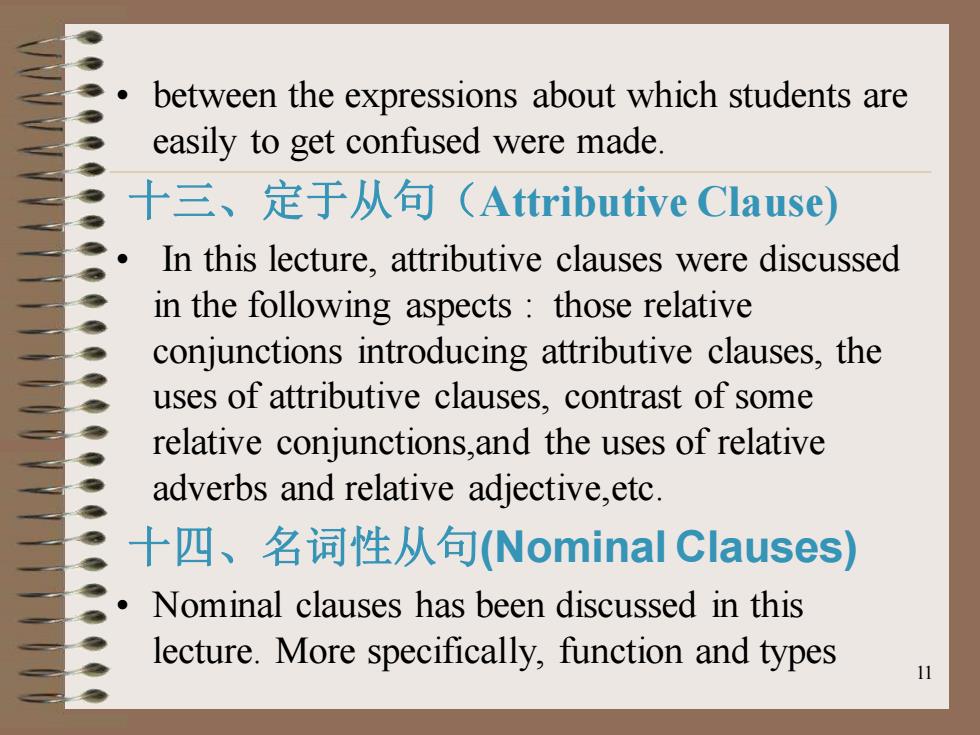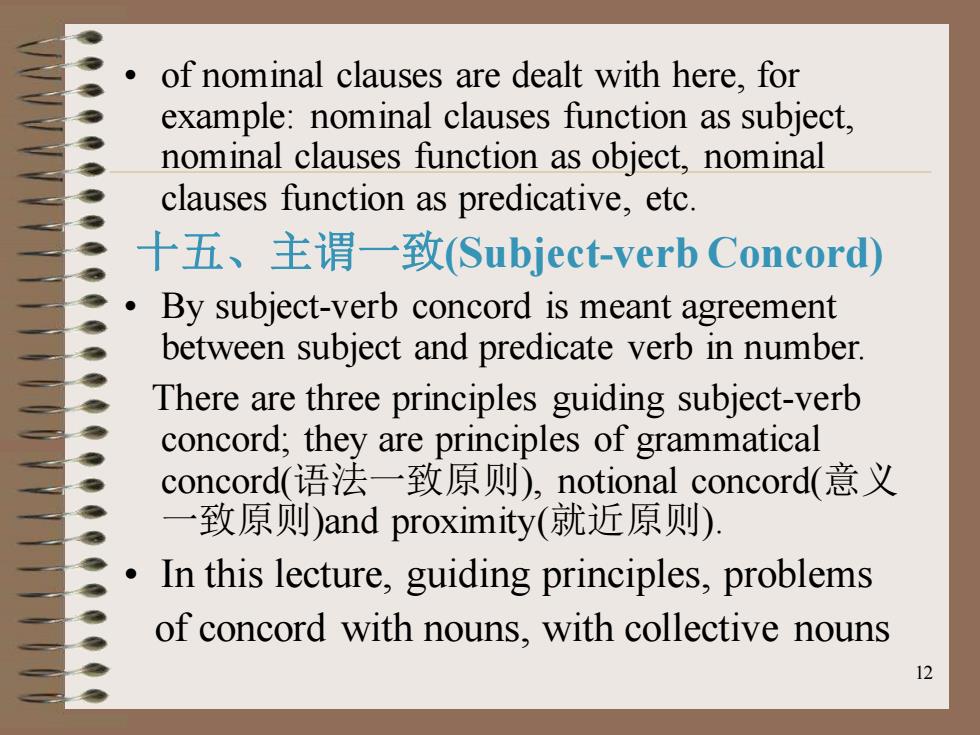
between the expressions about which students are easily to get confused were made. 十三、定于从句(Attributive Clause) In this lecture,attributive clauses were discussed in the following aspects those relative conjunctions introducing attributive clauses,the uses of attributive clauses,contrast of some relative conjunctions,and the uses of relative adverbs and relative adjective,etc. 十四、名词性从句(Nominal Clauses) Nominal clauses has been discussed in this lecture.More specifically,function and types
11 • between the expressions about which students are easily to get confused were made. 十三、定于从句(Attributive Clause) • In this lecture, attributive clauses were discussed in the following aspects : those relative conjunctions introducing attributive clauses, the uses of attributive clauses, contrast of some relative conjunctions,and the uses of relative adverbs and relative adjective,etc. 十四、名词性从句(Nominal Clauses) • Nominal clauses has been discussed in this lecture. More specifically, function and types

of nominal clauses are dealt with here,for example:nominal clauses function as subject, nominal clauses function as object,nominal clauses function as predicative,etc. 十五、主谓一致(Subject-verb Concord) By subject-verb concord is meant agreement between subject and predicate verb in number. There are three principles guiding subject-verb concord;they are principles of grammatical concord(语法一致原则),notional concord(意义 一 致原则)and proximity(就近原则) In this lecture,guiding principles,problems of concord with nouns,with collective nouns
12 • of nominal clauses are dealt with here, for example: nominal clauses function as subject, nominal clauses function as object, nominal clauses function as predicative, etc. 十五、主谓一致(Subject-verb Concord) • By subject-verb concord is meant agreement between subject and predicate verb in number. There are three principles guiding subject-verb concord; they are principles of grammatical concord(语法一致原则), notional concord(意义 一致原则)and proximity(就近原则). • In this lecture, guiding principles, problems of concord with nouns, with collective nouns